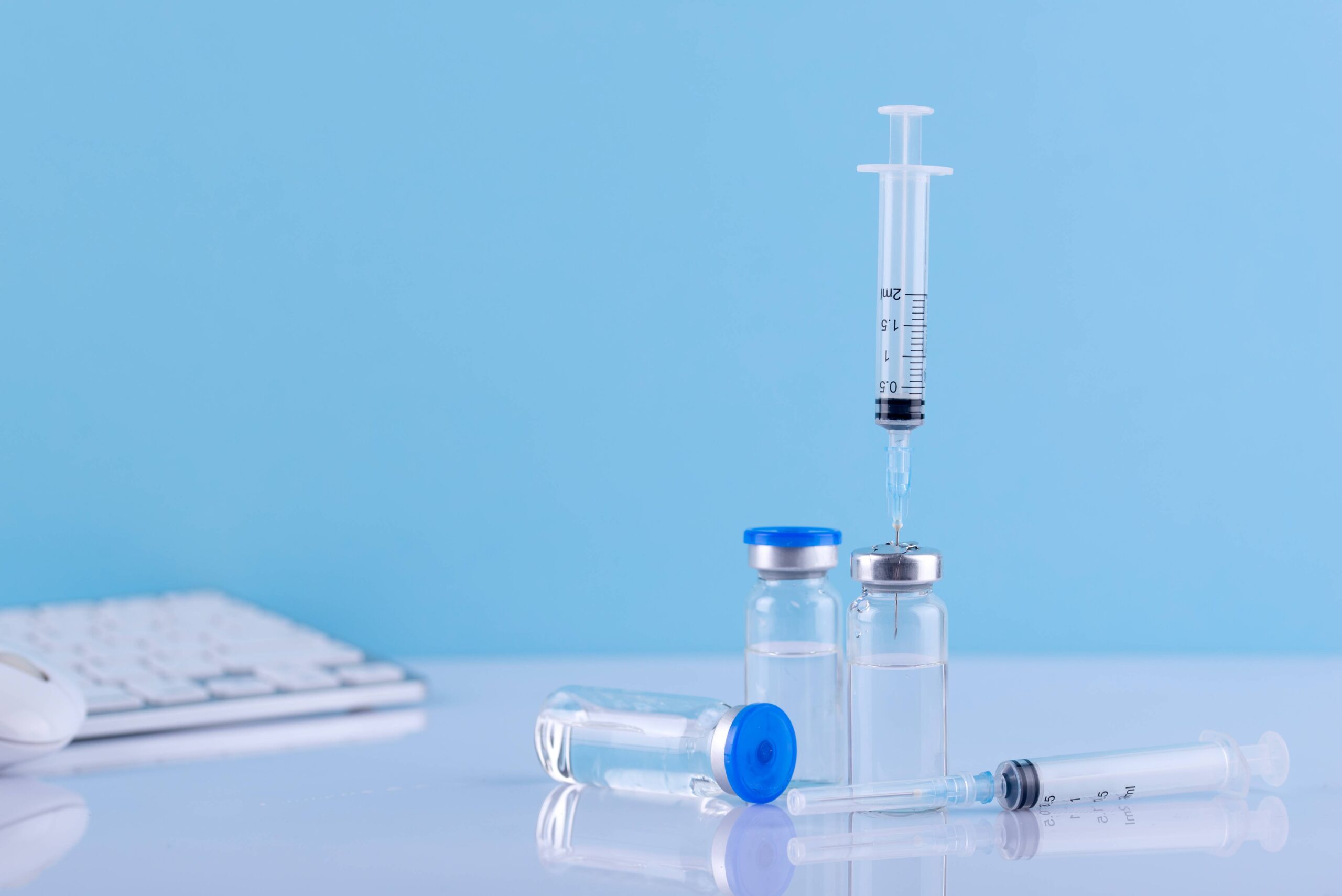Blog
Does Semaglutide Make You Sleepy? Understanding Fatigue, Energy Shifts, and How to Feel Your Best on GLP-1 Therapy

Does Semaglutide Make You Sleepy?
You’ve finally decided to take control of your weight and health. You’re hopeful, maybe even a little excited. But a few weeks in, something feels off. You’re sleeping more, moving slower, or fighting that mid-day fog you can’t shake.
If you’ve been wondering, “Does Semaglutide make you sleepy?” — you’re not imagining it. Many women experience fatigue or tiredness while taking Semaglutide, especially in the early weeks. The good news? It’s usually temporary and totally manageable once you understand what’s happening in your body.
Let’s take a gentle, honest look at why Semaglutide sometimes causes fatigue — and what you can do to bring your energy back.
Why Does Semaglutide Make You Sleepy?
When you start taking Semaglutide, your body begins to adjust to a new rhythm. The medication mimics a natural hormone called GLP-1, which helps control appetite, manage blood sugar, and improve metabolism.
Sounds great, right? And it is. But that same shift can also cause temporary energy dips, especially while your body learns to balance these new signals.
Think of it like this: your metabolism is recalibrating. It’s not shutting down — it’s just re-learning how to use energy efficiently. And that short adjustment period can feel a lot like fatigue.
Add in your everyday responsibilities — work, home, maybe kids who never seem to stop moving — and you’ve got the perfect recipe for exhaustion.
Common Reasons You Feel Tired on Semaglutide
Every woman’s body reacts a little differently, but here are the most common reasons you might feel tired or sleepy:
1. You’re Eating Less Than Before
Semaglutide naturally reduces your appetite. It helps you feel satisfied sooner and longer. But for some, that means skipping meals or not eating enough calories — which leads to lower blood sugar and, of course, low energy.
If you’re going too long without food, your body will feel it. Try eating smaller, balanced meals throughout the day.
2. Your Body Is Adjusting to New Blood Sugar Levels
GLP-1 medications help regulate insulin and glucose, which can cause mild dips in blood sugar as your system adapts. When your blood sugar drops, you might feel drowsy or mentally foggy.
Stabilising your meals with protein and complex carbs can help even out these fluctuations.
3. You’re Slightly Dehydrated
This one’s sneaky. Because Semaglutide slows digestion, you might not feel thirsty as often. But even mild dehydration can cause fatigue and headaches.
Try this trick: sip water throughout the day instead of chugging it all at once. Your energy will improve — and so will your focus.
4. Your Hormones Are Balancing Themselves
If you’ve struggled with hormonal shifts — postpartum changes, PCOS, perimenopause — you already know how unpredictable your energy can be. Semaglutide influences several metabolic hormones, so as your body adjusts, you may feel temporary waves of tiredness.
The silver lining? Most women find that once their body settles, their energy becomes more stable than before.
Is It Normal to Feel This Tired on Semaglutide?
Yes — at least for the first few weeks. Fatigue on Semaglutide is one of the more common side effects early on, but it’s rarely long-term.
Your body is learning to run on cleaner energy. Instead of frequent sugar spikes and crashes, you’re moving toward balance. That transition can take time.
But if you find that fatigue lingers or feels extreme, check in with your provider. Sometimes tiredness could mean your calorie intake is too low, your iron or B12 levels are off, or your dosage needs adjusting.
At Alternate Health Club, our clinicians often customise treatment schedules and supplement plans to help women get through this phase comfortably.
Simple Ways to Boost Energy While on Semaglutide
You don’t have to “push through” exhaustion. A few mindful tweaks can help your body adapt faster and restore your natural energy.
1. Don’t Skip Meals
Even if you’re not hungry, your body still needs nutrients. Think small but powerful meals — a smoothie with protein, a handful of almonds, or yoghurt with fruit. These light snacks keep your energy stable without forcing you to eat too much.
2. Load Up on Protein
Protein is your best friend when you’re on Semaglutide. It balances blood sugar, helps maintain muscle, and prevents that drained feeling.
Aim for lean sources like eggs, tofu, chicken, or fish.
Need help planning? Check out AHC’s nutrition guide:
👉 What to Eat on Semaglutide: Top Food Choices for Weight Loss and Health
3. Hydrate Consistently
Water is simple but powerful. It flushes toxins, improves focus, and fights fatigue. Add electrolytes or a pinch of sea salt if plain water feels boring — hydration doesn’t have to be bland.
4. Ease Into Exercise
If your body feels heavy, don’t force intense workouts. Gentle movement like walking, yoga, or light strength training can boost circulation and improve stamina without draining you further.
Consistency matters more than intensity right now.
5. Get Enough Sleep — Real Sleep
Semaglutide can subtly affect your sleep pattern. Try going to bed 30 minutes earlier, keeping a darker room, and avoiding screens before bed. Quality rest makes a massive difference when your body is adjusting to GLP-1 therapy.
6. Consider Nutritional Support
Fatigue can also stem from vitamin deficiencies. Many women on GLP-1 medications benefit from extra B12, vitamin D, and magnesium.
Always check with a professional before supplementing — at Alternate Health Club, personalised support is part of every plan.
The Emotional Side of Fatigue
This part doesn’t get talked about enough. Fatigue isn’t just physical — it can feel discouraging too.
You start excited, full of hope, and then suddenly, you’re tired, overwhelmed, and questioning everything. That emotional dip is completely normal. Your body is working hard behind the scenes to reset itself.
If you’re a mom, juggling endless responsibilities, that exhaustion can hit even harder. But please hear this — you’re not doing anything wrong. This tiredness doesn’t mean failure. It just means your body is adapting.
Many women at the Alternate Health Club tell us that once they understood why they were tired, they felt relief. Because once you understand what’s happening, it stops feeling like something’s wrong — and starts feeling like something’s changing.
Could Your Semaglutide Dosage Be Too High?
Sometimes, persistent fatigue is simply your body’s way of saying, “Hey, slow down.”
If you’re on a higher dose or increasing too quickly, that can amplify side effects — including tiredness. Gradual titration usually makes the journey smoother.
At Alternate Health Club, we take a personalised approach. Your plan adjusts based on how you feel, not just the scale. Because sustainable progress should never come at the cost of your well-being.
Why Fatigue Can Actually Be a Positive Sign
This may surprise you, but mild fatigue sometimes means your body is finally healing.
If you’ve spent years on adrenaline, caffeine, and stress hormones, Semaglutide may help your system calm down. That deep tiredness can be part of recovery — your body reclaiming balance after years of running on empty.
Give it grace. Rest when needed. You’ll find your energy returning stronger than before.
Real Stories, Real Women
“The first few weeks were rough — I could barely keep my eyes open by 3 PM. But by week four, it completely shifted. Now I wake up lighter and focused.”
— Rita, 42, New York
“I didn’t realise my tiredness was from eating too little. Once I added small snacks and drank more water, my energy came back.”
— Elena, 36, Chicago
“The AHC team explained what was happening to my metabolism. That reassurance changed everything — I stopped worrying and started trusting my body.”
— Melissa, 39, California
Their stories reflect what thousands of women experience — a temporary phase that leads to lasting change.
The Alternate Health Club Difference
At Alternate Health Club, we understand that your journey isn’t just medical — it’s personal.
You’re not just losing weight. You’re rebuilding confidence, reclaiming control, and learning how to feel good in your body again.
Our programs are designed for real women — busy, emotional, strong, and deserving of care that feels human. Every member receives:
- A personalised GLP-1 therapy plan (like Semaglutide or Tirzepatide).
- Access to affordable compounded medications safely managed by professionals.
- Ongoing nutrition and supplement guidance for energy and balance.
- Real human support from a compassionate team that listens.
You can explore more here:
👉 Effective Weight Loss Strategies: A Guide from the Alternate Health Club
👉 Semaglutide Fatigue: Understanding and Overcoming This Side Effect
A Quick Reset Plan for Energy
If you’ve been struggling with Semaglutide fatigue, try this quick checklist for a week:
- Eat small meals with protein every 3–4 hours.
- Drink 2–3 litres of water daily.
- Walk 20 minutes each morning.
- Limit caffeine after 2 PM.
- Go to bed 30 minutes earlier.
- Take deep breaths before meals — this relaxes your system.
You’ll notice your energy improves faster than you expect.
Final Thoughts: Fatigue Isn’t Forever
If you’re feeling sleepy on Semaglutide, remember — it’s temporary. It’s not a sign of weakness or failure. It’s a sign that your body is adapting to a new, healthier rhythm.
Give yourself grace. This phase will pass, and what comes next is worth it — balanced energy, confidence, and a lighter, more vibrant you.
At Alternate Health Club, we’re here to help you every step of the way — not just with your medication, but with the care and understanding every woman deserves.












